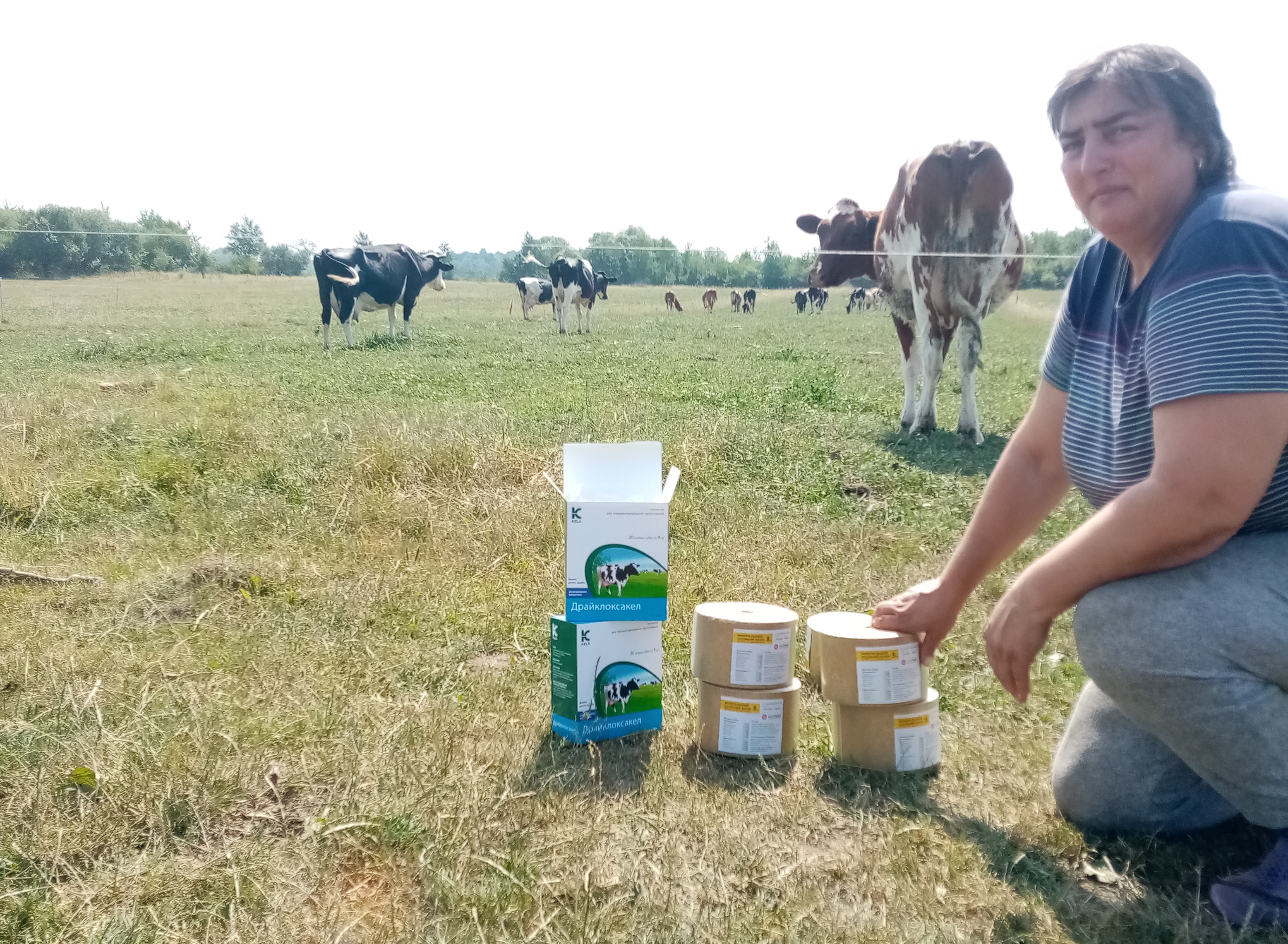The UN Development Program continues to support solutions that contribute to strengthening food security in Ukraine during the war
Dairy farms in Lviv Oblast to produce better quality milk thanks to UNDP support
July 27, 2022

The United Nations Development Programme in Ukraine together with the Lviv Agrarian Advisory Service has provided 800 sets of medications and feed supplements for family farms in Lviv Oblast that keep dairy cattle.
"With the outbreak of the full-scale invasion, many farmers began to actively help the military and people who were forced to flee their homes," says Ivan Pankiv, the director of the Lviv Agrarian Advisory Service.
“We established cooperation with a large number of farmers – about 100 of them are family farms. We were looking for opportunities to support them so that people would not stop production or reduce the number of their livestock, but continue to provide assistance to those who need it.”
According to Pankiv, family farms usually keep about 20-30 dairy cows, although some have up to 50. On average each cow gives approximately six tons of milk per year. It usually takes usually the whole family to work on such farms, and sometimes they hire additional workers to support them. The milk is collected and sold to a milk processing plant, and then it is supplied throughout the country.
"Without high-quality nutrition and special measures to prevent udder inflammations, cows give less milk, and if the animal gets sick, then such milk cannot be consumed," Pankiv explains.
“The best treatment is prevention. Thanks to UNDP's support, we received eight sets of prophylactic medicines and nutritional supplements for each family farm. Many people will be able to take better care of their animals, and they will see how effective it is. Now people will see how important such preventive measures are, because the amount of milk will increase, the productive lives of animals will be prolonged, and incomes will increase as well. Such support and incentive for development are essential, especially now.”
Farms are already noticing the effect of the medicines and feed supplements, and appreciate the help.
"We have a large family with ten children," says Mykola, a farm owner.
“We have about 50 hectares of land, and keep various livestock, and 18 cows. I’ve worked on land most of my life. At first, we had three cows, just for our own needs, then we began to expand and had six cows. Over the years we have grown to where we are now.
“We’ve always focused on growth, but with the beginning of a full-scale war, the situation changed drastically. Everything has become more expensive – fuel, fertilizers – it’s very difficult to predict what to do next. People can afford less, so now we are on the edge of survival.
“This year, almost all of the pastures dried up, so we use the feed we stocked for winter now so as not to lose our livestock. The assistance provided is a lot of support. Given the situation we and many other farmers are in now, it’s really making a difference."
Many family farms throughout the country face similar challenges as Mykola and his family. Continuing to operate in current circumstances, providing the country with quality products, and at the same time supporting the armed forces and volunteers, despite their own difficulties, is heroism as well.
When UNDP asked what other support small farms and cooperatives needed, the list turned out to be long, and included equipment, fuel, consumables, high-quality feed and food additives, medications for the prevention of various diseases in livestock, and much more. In order to run a farm, create new jobs, and provide the country and people with quality products, it requires the investment of a lot of resources as well as enormous human efforts. Farmers across the country are showing true heroism, and the UNDP team is determined to support them, providing the things they need to continue operating and developing.

 Locations
Locations
